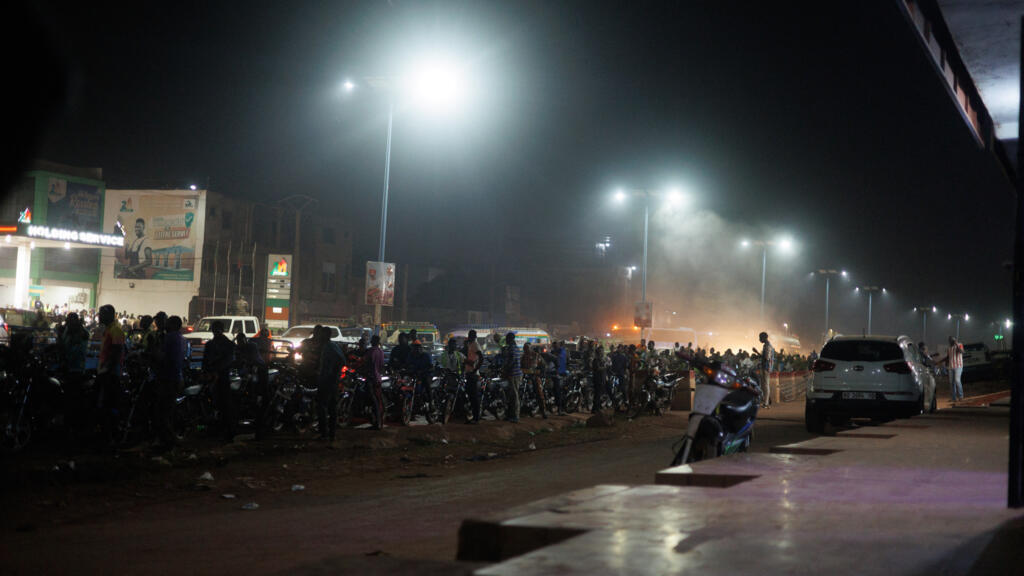
An ongoing fuel blockade initiated by the JNIM jihadist group in Mali has brought the landlocked Sahel nation’s economy to a near standstill. In an effort to isolate the capital, Bamako, and exert pressure on the ruling junta, the militants have intensified their attacks on fuel tankers, prompting Western governments to urge their citizens to leave the country.
Since back-to-back coups in 2020 and 2021, Mali has been ruled by a military junta that is struggling to counter various armed groups, particularly the Al-Qaeda-linked Group for the Support of Islam and Muslims (JNIM), which is carrying out the blockade.
Since September, the JNIM has targeted fuel tankers, particularly those coming from Senegal and Côte d'Ivoire, through which the majority of Mali's imported goods transit.
JNIM is retaliating against the authorities' ban on the sale of fuel at locations other than service stations in rural areas, a move meant to dry up the jihadists' fuel supply lines, according to Malian authorities.
Mali's fuel shortage is exacerbating severe and recurrent power outages that have crippled the economy for the past five years.
The junta announced late Sunday that class was cancelled at schools and universities for two weeks due to the shortages.
In the middle of harvest season, some agricultural machinery has been rendered inoperable without fuel, with the shortages having struck daily life outside the capital several weeks earlier.
Mali under pressure to end fuel crisis as negotiations with jihadists stall
Tankers have been set on fire daily for the past two months, while drivers and soldiers have been killed or kidnapped in jihadist ambushes.
Talks between Malian intermediaries and the jihadists have so far failed to alleviate the problem.
Western citizens urged to leave
Last Thursday, several embassies in Mali urged citizens to depart the country immediately while the United States and United Kingdom withdrew non-essential staff, amid fears of growing insecurity.
Citing the "unpredictability of Bamako's security situation" and "ongoing armed conflict" around the capital, the US embassy later urged all citizens to "depart immediately" on commercial aircraft.
Italy, Germany, Canada and a handful of other countries have also told their nationals to depart Mali as swiftly as possible.
Five years after the 2020 coup, where is Mali today?
The various embassies' recent actions "reveal a critical and rapid deterioration of security, even around Bamako, which until now had been relatively spared", says Bakary Sambe, director of the Timbuktu Institute, a Dakar-based think tank.
He told RFI that the jihadists do not appear to be preparing a military assault against the Malian capital, but rather working towards economic exhaustion intended to weaken the transitional regime in place.
"Several aspects lead me to be cautious about the imminence of a frontal assault on Bamako, which is neither in their doctrine nor within the current capabilities of JNIM. It is not their objective," he explains.
Economic suffocation
"The group has had to learn from past experiences [notably the occupation and administration of the northern regions of Mali for ten months in 2012, editor's note] and has made the strategic choice of gradual suffocation: a war of economic and political attrition, which delegitimises the regime without ever exposing itself to a conventional battle that would be lost in advance."
Since July, Mali has seen an increase in attacks targeting industrial and mining sites, particularly in the Kayes region, which accounts for 80 percent of Mali's gold production, its main source of wealth.
Chinese firms pay price of jihadist strikes against Mali junta
Examples include the Diamond Cement Factory in Kayes – where three Indian engineers were kidnapped – and several mines in the Kayes region, where about ten Chinese employees were abducted.
The Bougouni lithium mine, operated by the British company Kodal Minerals, has also been subjected to several raids.
According to information confirmed by RFI and France 24 on Monday, JNIM released three hostages in exchange for a large ransom.
Ransom paid for hostages
Two Emiratis and an Iranian, who were captured outside Bamako on 23 September were released on 29 October under the auspices of the Malian intelligence services for a sum between 50 and 70 million euros.
Several tons of military equipment – vehicles and weapons – were also delivered to the jihadist group. According to several sources, a prisoner exchange also took place.
For Sambe, these fall into a range of tactics used by JNIM to "project an image of resounding failure".
From falling export revenues, to scaring off direct investment and fomenting popular discontent, especially since the regime had promised security and sovereignty with support from Moscow.
"It's a war of suffocation, but also a strategy of discrediting the regime, demonstrating daily its inability to ensure the safety of the population."
In a statement released Monday, the Malian army claimed to have targeted "a major terrorist base" near Sirakoro, in the Bougouni region of central Mali.
According to the army headquarters, the site was used "to plan attacks against fuel tanker convoys."
The Malian army claims to have neutralised "more than a dozen terrorists" and destroyed or recovered equipment.







